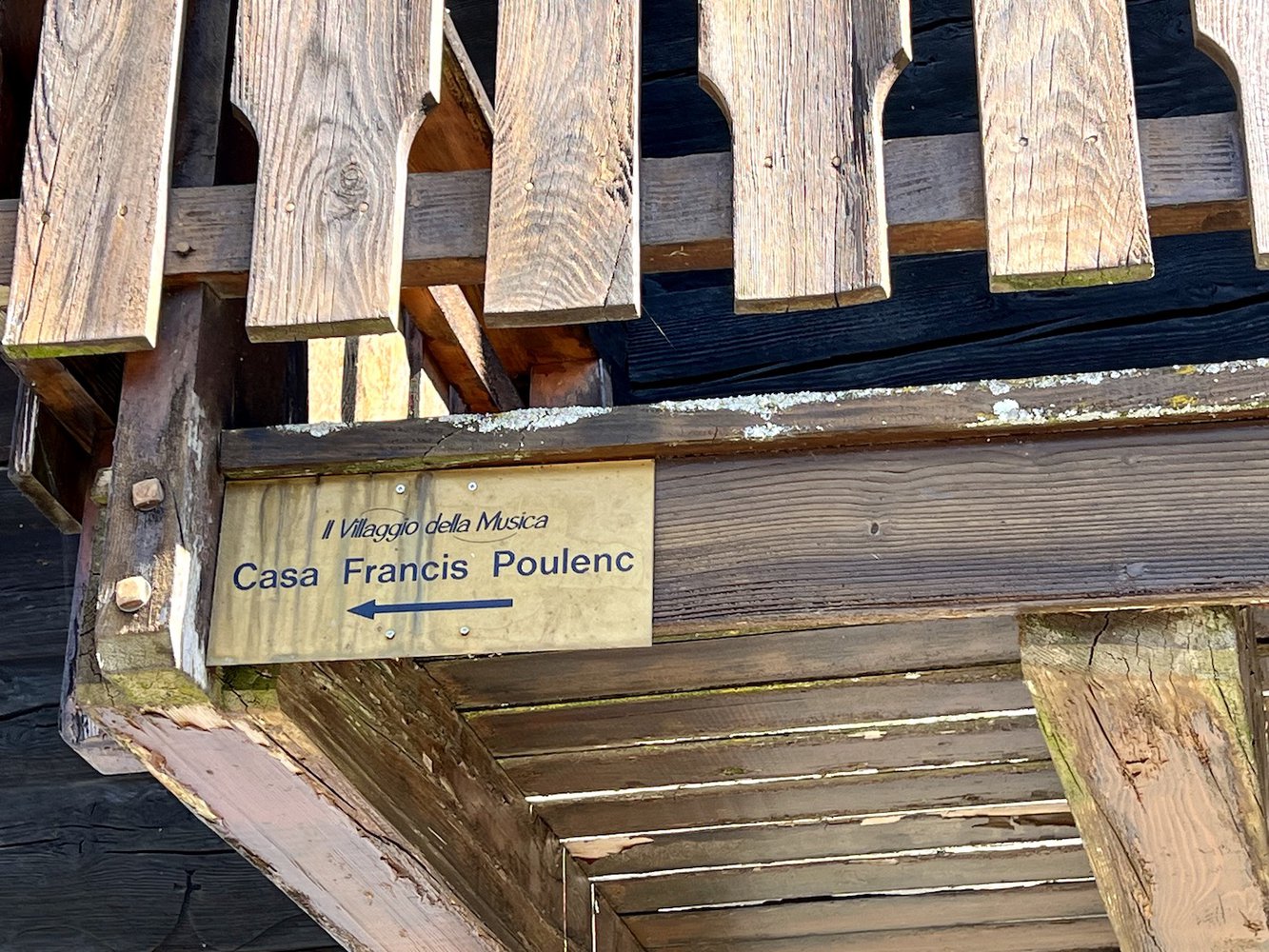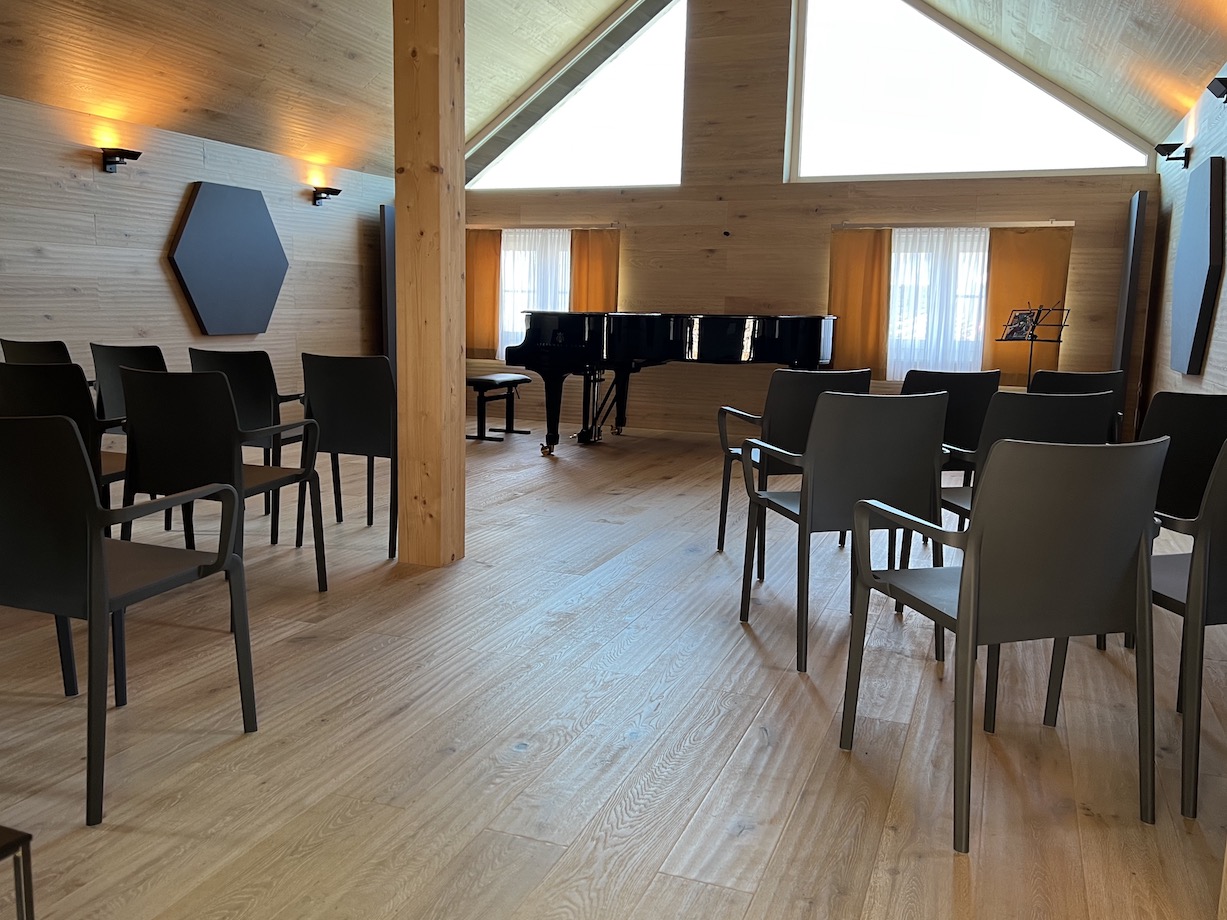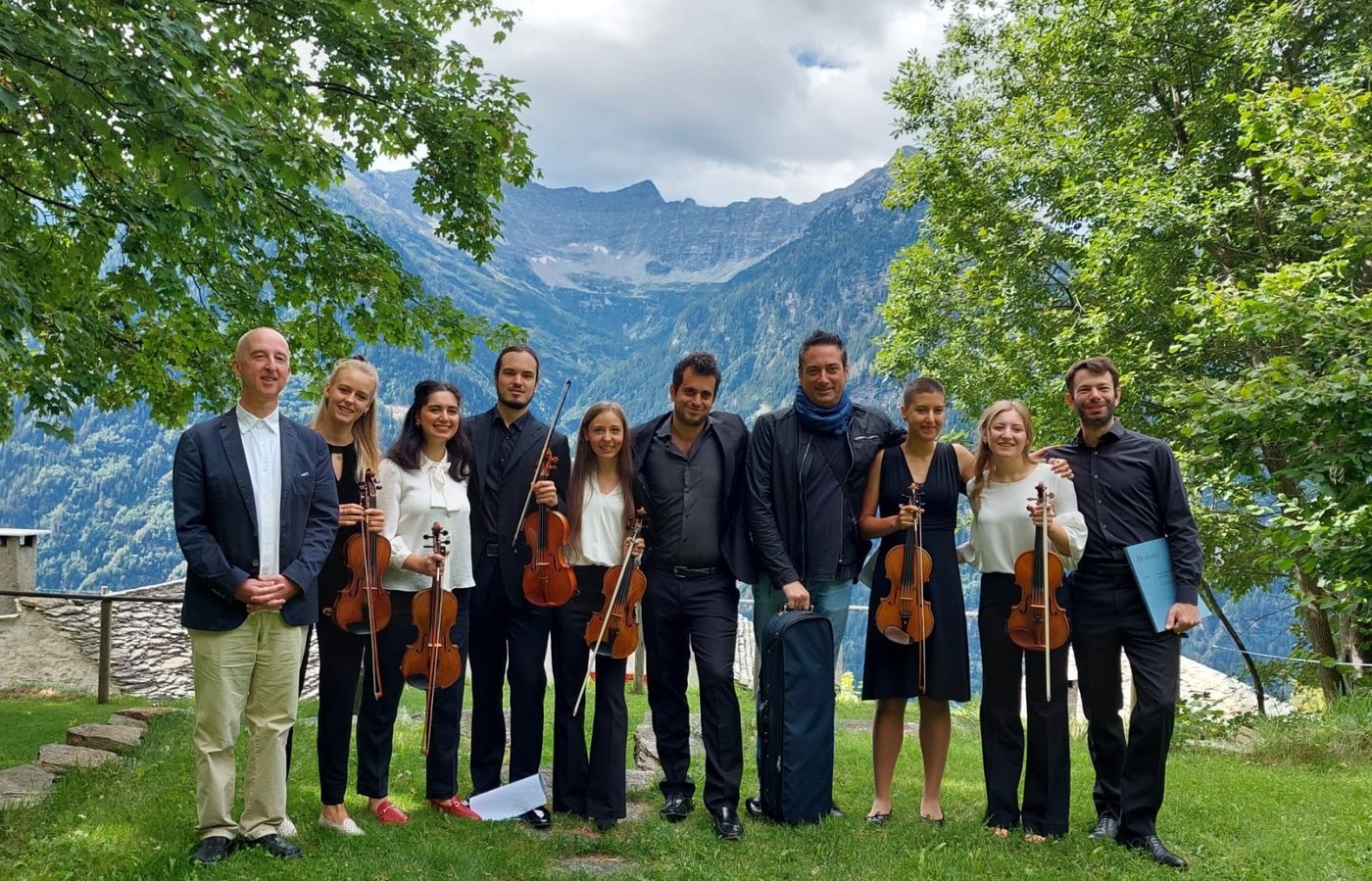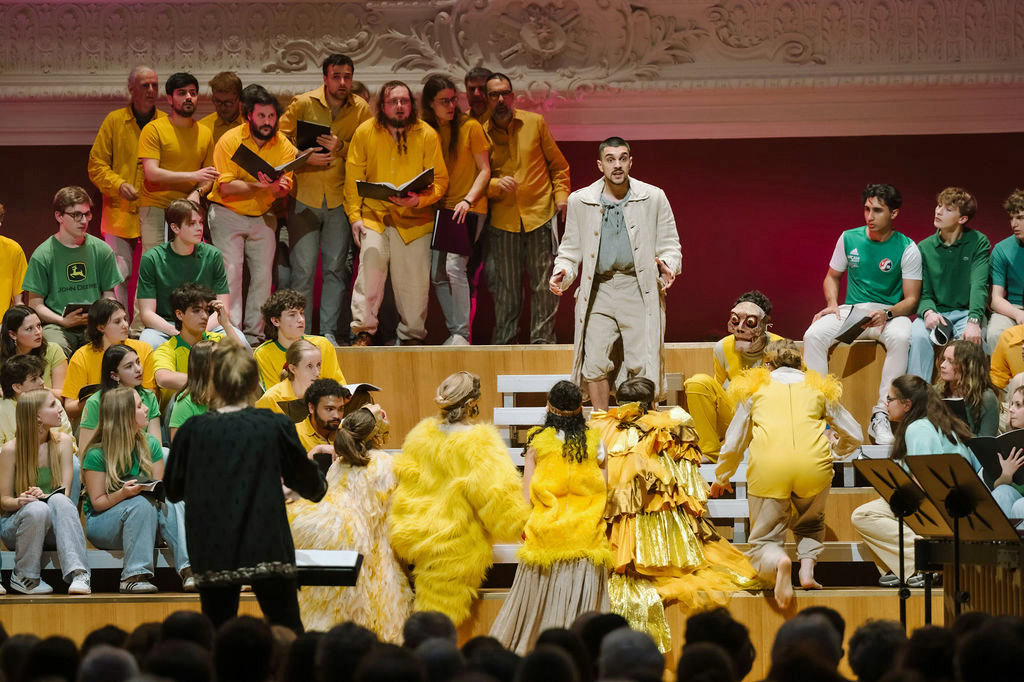Gentle socio-cultural adventure
In the Ticino music village of Sobrio, concerts, summer academies and local structures combine to form an integrative whole. An artistically and socially sustainable festival model, unique and unrepeatable.

Deep down in the Leventina, traffic roars along the Gotthard highway, but up in Sobrio, eleven hundred meters above sea level, you see and hear none of it. After driving up a steeply ascending road with countless hairpin bends, you end up in a different world here: a secluded mountain village, situated on a sunny slope between meadows and a wooded area, the houses covered in natural stone. A 14th century church, a restaurant with a beautiful terrace. The view of the mountains opposite is breathtaking.
Like most mountain villages in Ticino, Sobrio has lost a huge number of inhabitants over the course of the 20th century; in 2016 there were just eighty. But now new life has returned. "Villaggio della Musica", the village of music, is what it is called today, and a banner hangs on a railing at the entrance to the village: Sobrio Festival. From July to mid-October, instrumental courses for students and young professionals are held here, with instructors from the Berlin Philharmonic Orchestra and La Scala Orchestra in Milan, among others.
There are rehearsals and practices, concerts and the Elizabeth Tchaikovsky piano competition - a distant descendant of the Russian composer has lent her name to the event. The activities are divided into two events that complement each other: the summer academy with its master classes and the Sobrio Festival. In addition to concerts by international artists, the latter also offers the best course participants an opportunity to perform and, conversely, some guest soloists teach in the courses. The Villaggio della Musica forms the common umbrella.
A village changes
A metamorphosis has taken place in Sobrio. Many houses have been sustainably renovated, but their exterior has remained untouched. On the walls of the houses are small brass plaques with their names: Casa Gioacchino Rossini, Casa Héctor Berlioz, Casa Franz Schubert. Around fifty of the old houses have now been "musicalized" in this way. Most of them belong to private individuals who contribute to the musical activities in various ways, including practicing and former musicians.

Two of these houses are owned by the organizers: one is the large Casa Francis Poulenc with double rooms for the young musicians and a spacious kitchen where they can cook and meet as self-caterers. There are a number of young trees on the extensive grounds; a new one is planted for each winner of the piano competition. The other house is the perfectly furnished Casa Mahler. With a small hall for chamber concerts, workshops and master classes, it forms the heart of the company. A larger concert hall with around one hundred and sixty seats is the San Lorenzo church, and for open-air concerts there is an area supported by old walls directly behind the Casa Mahler.
The realization of a dream
The initiator and creative mind behind the Villaggio della Musica is Mauro Harsch, pianist and lecturer at the Conservatorio della Svizzera Italiana in Lugano. With this project, he has realized an old dream and found the ideal location for it in the small village of Sobrio, which he has known since childhood. "There are masterclasses and concerts everywhere, but Sobrio is unique, not only because of the landscape, but also because an entire village is involved in the music here." Harsch speaks enthusiastically about the atmosphere here: "You won't find this peace and harmony anywhere else. Here, in contact with nature and shielded from the banalities of everyday life, the young musicians can develop freely." This is not possible in a more touristy or urban environment.

Institutionally, the music village stands on two legs. The Ars Dei association founded by Harsch, which he heads, is responsible for artistic and organizational matters, while the Amici del Villaggio della Musica foundation takes care of all institutional aspects. These two bodies, plus a circle of friends with over two hundred members, also guarantee financial security. The music village is largely self-financed, but donations from third parties are welcome.
So that the village and music win
The music village is a long-term development project. This primarily concerns the expansion of the properties. Work has just begun on the conversion of an old albergo at the end of the village, and perhaps as early as next year a small hotel will be available to accommodate festival guests under the name "Hotel Symphony". A residential project for elderly musicians is already being considered, and new accommodation for course participants is also being considered.
But everything is being done in order, nothing is being rushed. Not least because those responsible are aware that the musical undertaking represents an intrusion into the village's long-established social fabric, including problems for the infrastructure. Consideration for the sensitivities of the locals and strict sustainability are therefore the first priority. Social tensions cannot always be avoided, which is why the individual development steps are carried out in collaboration with the municipality of Faido, to which Sobrio has belonged politically since 2016.
For example, there were difficulties with the plan to build a small concert hall on the meadow in front of the village. The architect Mario Botta had been commissioned to design the building and had already delivered a draft. But then some residents objected. They feared that village life could be turned upside down by growing cultural tourism and the project was shelved for several years. An agreement has now been reached and the search for sponsors for the construction costs of 3.5 million has begun.
The Sobrio music village is a socio-cultural adventure without equal. Here you can observe how an originally purely cultural idea can have an impact far beyond its own sphere and profoundly change social reality. It is a process with an open outcome. But if enthusiasm for the cause and social responsibility go so closely together, as seems to be the case here, then there is reason to believe that for both sides, the music and the village, the future has only just begun.








